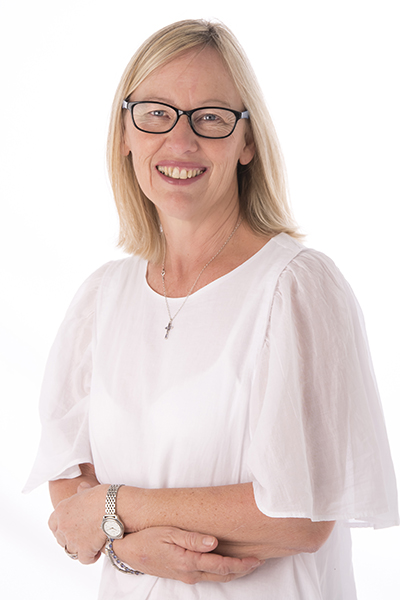Latest News Archive
Please select Category, Year, and then Month to display items
02 January 2025
|
Story Edzani Nephalela
|
Photo Lethabo Machabaphala
 From the left are, Prof John Klaasen, Dean of the Faculty of Theology and Religion; Prof Vasu Reddy, Deputy Vice-Chancellor: Research and Internationalisation at the UFS; Prof Anthea Rhoda, acting Vice-Chancellor and Principal of the UFS; Prof Allan Boesak; Prof Nico Koopman, Deputy Vice-Chancellor: Social Impact, Transformation and Personnel at Stellenbosch University; and Dr Eugene Fortein, Senior Lecturer: Historical and Constructive Theology at Prof Boesak’s book launch.
From the left are, Prof John Klaasen, Dean of the Faculty of Theology and Religion; Prof Vasu Reddy, Deputy Vice-Chancellor: Research and Internationalisation at the UFS; Prof Anthea Rhoda, acting Vice-Chancellor and Principal of the UFS; Prof Allan Boesak; Prof Nico Koopman, Deputy Vice-Chancellor: Social Impact, Transformation and Personnel at Stellenbosch University; and Dr Eugene Fortein, Senior Lecturer: Historical and Constructive Theology at Prof Boesak’s book launch.
In a world increasingly defined by the stark contrasts of power and vulnerability, the concept of democracy often reveals itself as a double-edged sword. For the children of struggle – those who have grown up amid the chaos of inequality and conflict – democracy can feel like a distant promise, an ideal often outmanned by the realities they face. The deception of hope lingers in the air as aspirations clash with systemic barriers, leaving many to navigate a landscape where a harsh daily existence obscures the principles of freedom and justice. This exploration seeks to uncover the intricate dynamics between hope and disillusionment, shedding light on the lived experiences of those who yearn for a brighter future yet grapple with the weight of unfulfilled promises.
This was the essence of the public lecture titled Outmanned by Democracy: Children of Struggle, Deception, and Hope, presented by Prof Allan Boesak, a theologian and political activist, on the Bloemfontein Campus.
Prof Boesak confronted the continuous socio-economic challenges faced by South Africa and other nations, including racism, narrow ethnic nationalism, and the revival of tribalism. He emphasised the role of churches in tackling these issues. “The responsibility of churches is to articulate what politicians are often afraid to say,” he stated. “Put your ideologies into practice and leverage your power as ministers of the Word to shape the future and reclaim the dignity of your people. This is where unity transcends colour and stature. Consider the various roles that churches could play in reconciling communities, as seen in the Gaza crisis.”
During his visit to the UFS Faculty of Theology and Religion, Prof Boesak also launched a four-volume set titled The Fire, The River and the Scorched Earth: Fifty Years of Black Theology Through the Lens of Allan Boesak. The first three volumes include his lectures and responses from various theologians, while the fourth contains his sermons. This body of work aims to document, critique, and celebrate the contributions of black theology, highlighting its role in the struggle for justice and liberation and underscoring Prof Boesak’s unwavering commitment to freedom, liberation, and democracy.
In a time when hope and disillusionment coexist, Prof Boesak’s insights remind us of the transformative power of faith and activism in the continuing fight for a more equitable world
UFS Expert: Prof Felicity Burt investigates zoonotic and arboviruses
2017-12-13

Prof Felicity Burt recently received a B-rating from the
National Research
Foundation.
Photo: Sonia Small
Prof Felicity Burt is from the Division of Virology in the Faculty of Health Sciences at the University of the Free State (UFS), as well as the National Health Laboratory Services (NHLS). She currently holds an NRF-DST South African Research Chair in vector-borne and zoonotic diseases. Professor Burt and her research group investigate arboviruses and zoonotic viruses.
Prof Burt’s research primarily focuses on host immune responses to arboviral infections specifically characterising humoral and cellular immune responses in patients with infections such as Crimean-Congo haemorrhagic fever (CCHF) virus and Sindbis virus; epitope discovery for development of diagnostic tools; development of molecular and serological assays for surveillance purposes; virus discovery; and the development of vaccines.
Raising awareness of these viruses, defining associated diseases, and developing tools for surveillance programmes will contribute to understanding these pathogens as well as the public health implications.
Leads research group in papilloma viruses
Arboviruses cause outbreaks of disease in South Africa annually. Outbreaks are usually associated with heavy rainfall favouring the breeding of mosquitos, but these viruses also have the capacity to spread and become endemic in new areas where competent vectors are present.
In addition, she is leading a research group that investigates human papilloma viruses (HPV) associated with head and neck cancers and recurrent laryngeal papilloma.
The focus of this research group is to ascertain the genotypes of HPV causing these diseases, identification of novel biomarkers for early detection, and complete genome sequencing for molecular characterisation of HPV isolates.